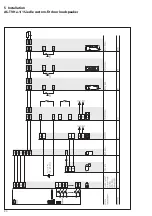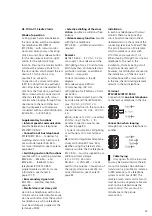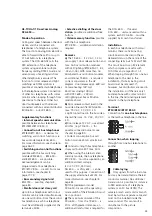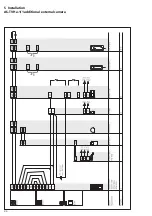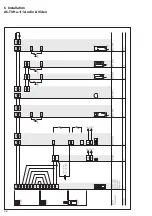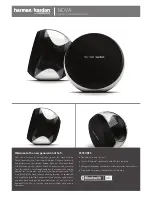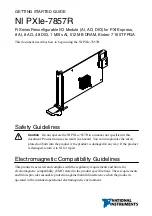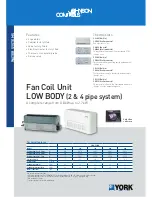
39
AS-TVHa-2/1 multiple line system
Mode of operation
Calling, speech and video between
the door station and the connected
bus telephones BTSV/BFSV/
BTCV 850-... with colour monitor.
Audio and video privacy of existing
calls is assured. Door release button
for the door release function, light
button for the light switching
function. Pressing the monitor
button will show the camera picture
from the door station which placed
the last door call. This function is
only possible if no call exists.
Connection of a storey call button
(ERT) for calling from an apartment
door. Ring tones can be selected for
calls from the front door, apartment
door or internal calls.
Connection of other bus telephones
with colour monitor when looping
through from one device to the
next. Other bus door loudspeakers
with video are connected with bus
video distributors BVVU 650-... or
BVVS 650-... .
In a multiple line system comprising
only 2 lines, connection between the
two bus video line rectifiers is
possible without bus distributor
BVVU 650-... . Up to 15 lines can be
linked via BVVU 650-... .
Supplementary functions
•
Internal speech communication
between the bus telephones
BTSV/BFSV/BTCV 850-... only within
the same line.
•
Connection of bus telephones
BTS/BFS/BTC 850-... or devices for
switching and control functions via
bus audio decoupler BAA 650-...
For more information, see chapter 6,
page 46-47.
•
Switching and control functions
possible with bus switching modules
BSM 650-..., BSE 650-... and
BEM 650-... , feedback to bus
telephones BTC/BTCV 850-...
programmable via LED. Switching
and control functions are possible
across different lines. For more
information, see chapter 8,
page 77-79.
•
Bus secondary signal unit
BNS 750-... possible, chapter 8,
page 84.
•
Parallel door and storey call
Up to 8 bus telephones with colour
monitor can be called simultaneously
via one call button. From the second
bus telephone, each bus telephone
must be additionally supplied at the
terM/-M.
•
Selective dialling of the door
station
possible via additional free
buttons.
•
Video memory function
possible
with the bus telephone
BTCV 850-..., additional installation
required.
Remarks
a)
The TR 603-... (12 V AC, 1.3 A)
can supply 1 door release button
and max. 24 bus call button
modules with LED lighting
(BTM 650-01, -02, -03 and -04).
With more than 24 illuminated bus
call button modules, an additional
TR 603-... is required.
Current consumers in the AS
diagram:
Door release appr. 600 mA
Camera heating 100 mA
LED lighting per bus call button
module 25 mA
b)
Door release contact load in the
bus video line rectifier BVNG 650-...
max. 15 V AC, 30 V DC, 2 A.
• Light contact load in the bus video
line rectifier max. 15 V AC, 30 V DC,
2 A.
c)
Door release 12 V AC, use at least
20 Ohm, (e.g. TÖ 615-...), for
possible connection variants see
chapter 8, page 80.
• Current consumption bus call
button module 25 mA at terminal
b/c.
d)
Conductor length bus telephone -
storey call button ERT max. 50 m.
e)
When using the internal video
memory module, the bus telephone
BTCV 850-... must be supplied by an
additional direct voltage
(20 - 30 V DC, 350 mA).
NG 602-... or VNG 602-... can be
used for this purpose. Connection of
the supply at terM/-M. For
more information, see chapter 8,
page 82.
Installation
In each bus telephone with colour
monitor, there is a terminating
circuit board connected in the as-
delivered status in the centre of the
connecting terminals TaM and TbM.
This circuit board is an RC element
which comprises a resistor with
100 Ohm and a capacitor 1 nF.
When looping through from one bus
telephone to the next in the
installation, this terminating circuit
board must be removed. If,
however, bus distributors are used in
the installation, or if there is only 1
bus telephone with colour monitor
in the line, the terminating element
remains in the bus telephone.
Terminal
BTSV/BFSV/BTCV 850-0
Connection for
one bus telephone
or the last bus telephone in the line.
Connection when looping
through from one bus telephone to
another.
Cable laying
!!
Only signals from the In-Home
bus may be transmitted via the laid
conductor material. No additional
transmission is possible, for instance
to PBX extensions of a telephone
system or an S0 bus (ISDN). The
camera branch and monitor branch
must be laid in a separate cable and
must not be installed inside the
same conduit. This can result in
disturbance to the picture
composition.
Summary of Contents for BFS 850-0
Page 1: ...System Manual In Home bus Video Issue 2007 ...
Page 8: ...8 3 Configuration conductor lengths Multiple line system Line 1 Line 2 Line 15 ...
Page 26: ...26 5 Installation AS TVHa 1 1 Siedle Vario ...
Page 30: ...30 5 Installation AS TVHa 1 1 Siedle custom fit door loudspeaker ...
Page 32: ...32 5 Installation AS TVHa 1 1 Siedle Classic ...
Page 34: ...34 5 Installation AS TVHa 1 1 Siedle Steel ...
Page 36: ...36 5 Installation AS TVHa 1 2 Siedle Vario ...
Page 38: ...38 5 Installation AS TVHa 2 1 multiple line system ...
Page 40: ...40 5 Installation AS TVHa 1 1 call via display call module DRM 611 0 ...
Page 42: ...42 5 Installation AS TVHa 1 1 DoorCom Analog DCA 650 ...
Page 44: ...44 5 Installation AS TVHa 1 1 additional external camera ...
Page 46: ...46 6 Installation AS TVHa 1 1 Audio Video ...
Page 48: ...48 6 Installation AS TVHa 1 2 Audio Video ...
Page 50: ...50 6 Installation AS TVHa 2 1 Audio Video ...
Page 78: ...78 8 Supplementary functions AS TVHa 1 1 with switching control functions ...






